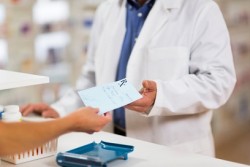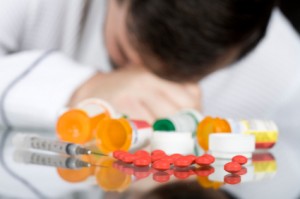Are There Any Pharmacological Treatments for Stimulant Abuse?
According to the National Institute on Drug Abuse, “At this time, there are no medications that are FDA-approved for treating stimulant addiction.” However, many pharmacological treatments area still used in the rehabilitation process for stimulant abusers.
Vaccines for Stimulant Abuse
Harvard Medical School states, “Researchers have been working on anti-addiction vaccines since 1974,” or drugs that are meant to help a person’s immune system antibodies recognize the molecules of the drugs and bind to them so they cannot get through the blood-brain barrier. While a vaccine does exist for cocaine, the FDA has not officially approved it. “Given the pace of drug discovery, it is unlikely any of these vaccines will reach the market soon,” but they are currently in development and may one day be viable treatment methods.
Medications for Stimulant Withdrawal

Antidepressants are sometimes prescribed to treat the depressive symptoms that often accompany withdrawal.
Medications are often used during stimulant withdrawal, or the symptoms caused when a person who is dependent on stimulants suddenly stops using them. According to the US Department of Veteran Affairs, depending on the person’s needs, these medications can include:
- Anticraving agents used to minimize cravings during early withdrawal
- Neuroleptics/antipsychotics used to treat hallucinations and other psychological and behavioral side effects caused by long-term drug abuse (often called stimulant-induced psychosis)
- Antidepressants used to treat depressive symptoms, usually in the late withdrawal phase
Though these medications can be extremely necessary and beneficial toward an individual’s recovery, they do not actually target addiction itself and, instead, merely treat the symptoms caused when a person stops abusing stimulants suddenly. These medications are still an important part of rehabilitation, though; they just don’t treat the person’s addiction in a literal sense.
Treatments for Stimulant Addiction
There aren’t any drugs currently approved to treat stimulant addiction, but the issue can be treated in many ways through the use of behavioral therapy. Several different options exist, including:
- Cognitive-behavioral therapy (CBT)
- The Matrix Model
- Group therapy
- Contingency management
- Couples/family counseling
In addition, a person can also attend a support group regularly, such as Cocaine Anonymous or SMART Recovery. Because there are no medications approved for this purpose specifically, like the way methadone exists to treat heroin abuse, these therapies are the most important options available for the issue, and at least one should be used during recovery if not more.
How Can Pharmaceuticals Help Stimulant Addicts?
Though they can’t treat the individual’s addiction directly, medications can be helpful during rehab for stimulant addiction and abuse. However, this is only true if they are
- Prescribed by a doctor
- Taken by the patient exactly as the doctor prescribed them to be
- Monitored for their side effects and ensured that they are continuing to be helpful to the individual
All of the medications listed above cannot be used safely or legally without a doctor’s prescription, and individuals in addiction recovery must be especially careful to only take drugs recommended by their doctors.
Stop Abusing Stimulants Now
Addiction treatment can help you begin to recover, and pharmacological intervention is often a part of it. Call 800-605-6597 Who Answers? today to find rehab centers in your area or to learn more about stimulant abuse.



